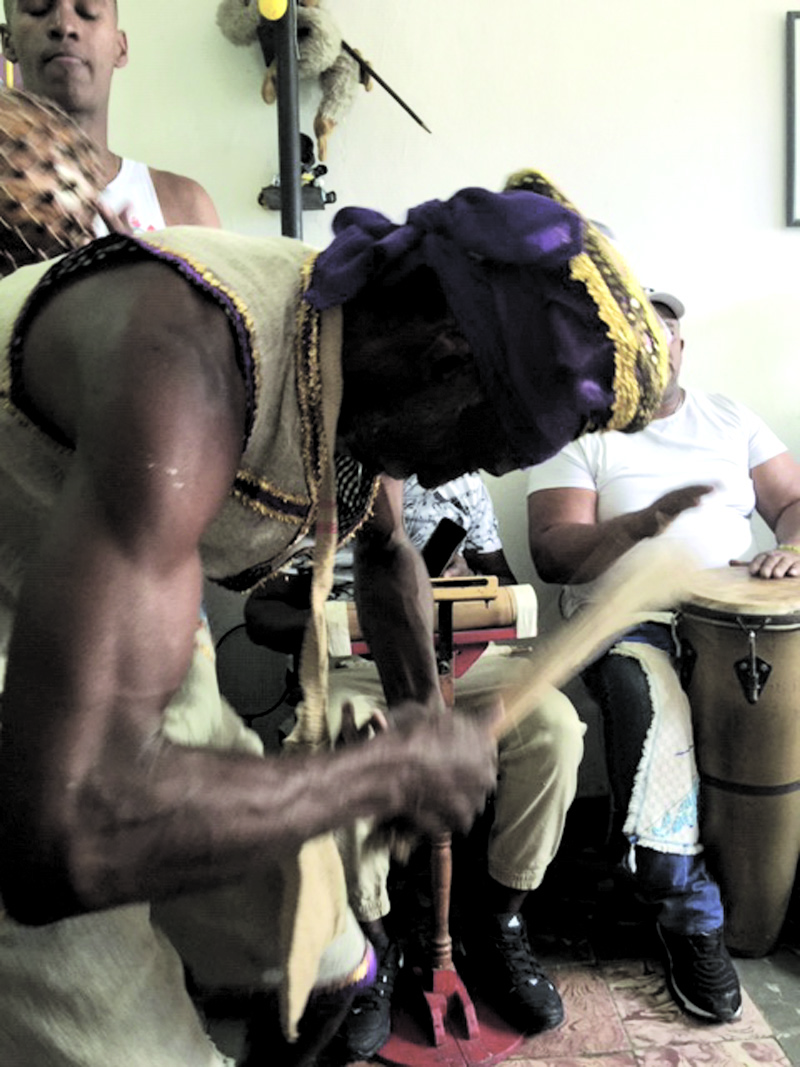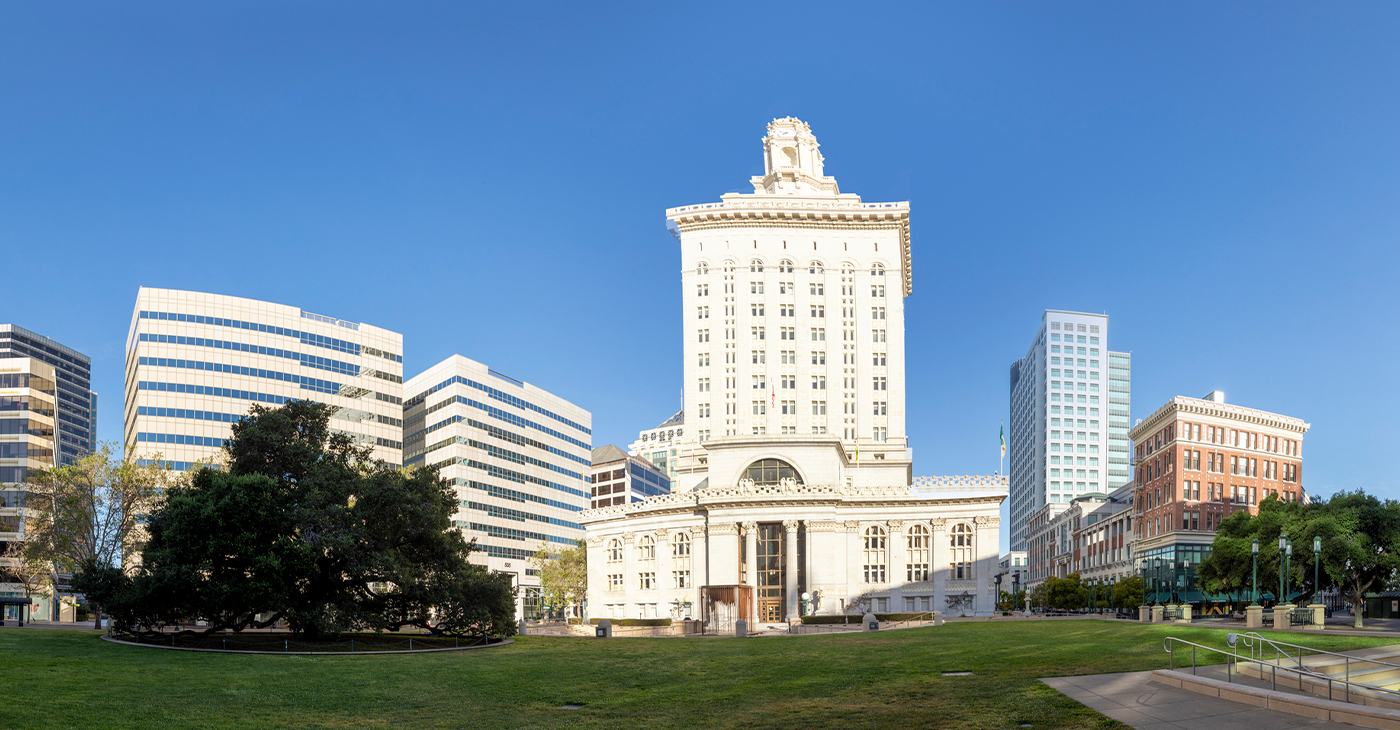Bay Area
Practitioners of African Traditional Spirituality Put Most Observations on Hold During COVID-19 Pandemic

As the faithful of the Abrahamic traditions world over have been grappling with the impact of the COVID0-19 pandemic on their religious observances—Passover, Easter and Ramadan – so, too, have practitioners of African Traditional Religion.
The observances of ATR don’t depend as much on a fixed calendar although there are such. But for the most part, traditionalists heed the prognostications of their diviners who determine the outlook over a particular geographical area and/or faithful who may be far from home.
From Nigeria to the Caribbean to the Americas, an epidemic had been foretold.
African Americans apprehend the observances through two major avenues of tradition: that of the Cuban derivation, called Lucumi (derogatorily as Santeria) and Isese, of direct Nigerian tradition.
Both would agree that whatever is ordinarily done in this season has been superseded by the pandemic’s immediate threat of disease and death. For the Cubans, the ‘Letra del Ano” or reading of the year, a divination session conducted on Jan. 1, 2020, by luminaries in Cuba’s Ifa tradition is proving prescient, not just for Cuba but the world. Proliferacion de Epidemicas debido a la mala hygiene y la indiscipline social, it read. Proliferation of epidemics because of bad hygiene and failure of social discipline.
Fully six months earlier, at the beginning of the year for Nigeria, the diviners’ prediction from June 2, 2019, in the holy city of Ile Ife, also indicated that epidemics could happen because of bad hygiene.
In both Lucumi and Isese, adherents generally appeal to the forces of nature (water, wind, fire, earth and all in those domains) on the planet as spiritual beings endowed with consciousness.
Right now, they are petitioning Olodumare (almighty God, owner of the day) in general and Babaluaiye (Father of the Hot Earth) as well as the memory of their beloved ancestors.
Babaluaiye is the force of sickness, acknowledged for the power of devastation to humanity through disease. In Nigeria, he became associated with the hot earth because sickness came during the hot dry season. He is further associated with ancestors and the force of death because of the burials of the dead.
One of Babaluaiye’s apataki, or myths, is that when he was on the road, during that hot, dry season, people hid in their homes until he passed by. Where disease had overcome a village, survivors hid in the forests. In other words, social distancing.
Among the Lucumi in the United States, social distancing seems to be the order of the day. “This is having a big impact on us,” said Nelson Rodriguez, a renowned Oriate (master of ritual initiations) who lives on the seventh floor of a large apartment building in New York’s hot zone, the Bronx.
Normally he travels to California, Puerto Rico, Florida and Cuba to conduct initiations but he hasn’t left his house since the shelter-in-place order in March. In his late 60s, he’s diabetic and a former smoker, a virtual poster child of a pandemic victim.
He asked a friend to take his dog because he can’t risk walking him in his neighborhood where it is clear, looking on the crowds below his seventh floor balcony, that too many people are ignoring Gov. Andrew Cuomo’s directive.
Even when he is not traveling, Rodriguez is accustomed to attending drum ceremonies that typically involve 50 people or more and doing what ordinary priests do: one-on-one divinations and prayer sessions called misas.
Instead, he is conducting a course on divination for his students through Zoom.
Among Isese in the United States and in Africa, such strict adherence to social distancing doesn’t appear to be as rigid among practitioners, perhaps because a lot of their stateside leadership is in Georgia and South Carolina. Diviners are working hard, determining what prayers and offerings should be done at this time to both lessen the impact on human beings and to calm the Earth itself.
Debunking conspiracy theories, Araba Awodiran Agboola says “The virus originated in nature,” and is a response to violations of nature by human beings. “Nature is present to correct the behavior.”
Willie Ramos, Lucumi organizer of Oloshas United, a federation of priests and priestesses all over the United States, has called for a nationwide moratorium on rituals except in life-or-death situations and pre-burial rituals called Etutu. Not knowing how long the health crisis will last, he believes that adherents may have to figure some things out that may change ritual to accommodate the times we live in.
All members of the faith are wondering how this can be done given that rituals require in-person touch and presence. The HIV-AIDS crisis of the 1980s changed some ritual procedures but because COVID-19 transmits so easily much more care must be taken.
Lucumi practitioners in Philadelphia realize the dangers to themselves, but have started taking steps to make sure their brothers and sisters in the faith who pass away from the virus are properly buried.
And some Lucumi practitioners in Georgia with members flung across the country were advised to stand down on ritual at least until October.
Internet conversations among the faithful seem to agree that the pandemic is caused by violations to the Earth. Over the last 200 years, the exploitation of resources has been rampant with a visible impact on our ecosystem.
One comment circulating on Facebook reads that through the pandemic, ‘nature has sent us to our room’ for a time-out.
And perhaps that is a good thing.
Ifadunke Olayemi, who specializes in appeasement to the ancestors, says she is particularly attuned to water at this time. She uses a vessel of water to meditate and then pours it outside, especially at the roots of trees.
There are posts remarking on the return of wild animals to places where humans have become scarce: beaches, forests, even some paved roads.
The absence of cars has cleared polluted air in the skies in Los Angeles, New Delhi and, of course New York.
From his balcony, Rodriguez, a native of Puerto Rico, is doing something he never could before in his many years in the Bronx: take a deep, refreshing breath.
Activism
Oakland Post: Week of December 25 – 31, 2024
The printed Weekly Edition of the Oakland Post: Week of December 25 – 31, 2024

To enlarge your view of this issue, use the slider, magnifying glass icon or full page icon in the lower right corner of the browser window. ![]()
Bay Area
Glydways Breaking Ground on 14-Acre Demonstration Facility at Hilltop Mall
Glydways has been testing its technology at CCTA’s GoMentum Station in Concord for several years. The company plans to install an ambitious 28-mile Autonomous Transit Network in East Contra Costa County. The new Richmond facility will be strategically positioned near that project, according to Glydways.

The Richmond Standard
Glydways, developer of microtransit systems using autonomous, small-scale vehicles, is breaking ground on a 14-acre Development and Demonstration Facility at the former Hilltop Mall property in Richmond, the Contra Costa Transportation Authority (CCTA) reported on social media.
Glydways, which released a statement announcing the project Monday, is using the site while the mall property undergoes a larger redevelopment.
“In the interim, Glydways will use a portion of the property to showcase its technology and conduct safety and reliability testing,” the company said.
Glydways has been testing its technology at CCTA’s GoMentum Station in Concord for several years. The company plans to install an ambitious 28-mile Autonomous Transit Network in East Contra Costa County. The new Richmond facility will be strategically positioned near that project, according to Glydways.
The new Richmond development hub will include “over a mile of dedicated test track, enabling Glydways to refine its solutions in a controlled environment while simulating real-world conditions,” the company said.
Visitors to the facility will be able to experience on-demand travel, explore the control center and visit a showroom featuring virtual reality demonstrations of Glydways projects worldwide.
The hub will also house a 13,000-square-foot maintenance and storage facility to service the growing fleet of Glydcars.
“With this new facility [at the former Hilltop Mall property], we’re giving the public a glimpse of the future, where people can experience ultra-quiet, on-demand transit—just like hailing a rideshare, but with the reliability and affordability of public transit,” said Tim Haile, executive director of CCTA.
Janet Galvez, vice president and investment officer at Prologis, owner of the Hilltop Mall property, said her company is “thrilled” to provide space for Glydways and is continuing to work with the city on future redevelopment plans for the broader mall property.
Richmond City Manager Shasa Curl added that Glydways’ presence “will not only help test new transit solutions but also activate the former Mall site while preparation and finalization of the Hilltop Horizon Specific Plan is underway.
Alameda County
Last City Council Meeting of the Year Ends on Sour Note with Big Budget Cuts
In a five to one vote, with Councilmembers Carroll Fife and Janani Ramachandran excused, the council passed a plan aimed at balancing the $130 million deficit the city is facing. Noel Gallo voted against the plan, previously citing concerns over public safety cuts, while Nikki Fortunato-Bas, Treva Reid, Rebecca Kaplan, Kevin Jenkins, and Dan Kalb voted in agreement with the plan.

By Magaly Muñoz
In the last lengthy Tuesday meeting of the Oakland City Council for 2024, residents expressed strong opposition to the much needed budget cuts before a change in leadership was finalized with the certification of election results.
In a five to one vote, with Councilmembers Carroll Fife and Janani Ramachandran excused, the council passed a plan aimed at balancing the $130 million deficit the city is facing. Noel Gallo voted against the plan, previously citing concerns over public safety cuts, while Nikki Fortunato-Bas, Treva Reid, Rebecca Kaplan, Kevin Jenkins, and Dan Kalb voted in agreement with the plan.
Oakland police and fire departments, the ambassador program, and city arts and culture will all see significant cuts over the course of two phases.
Phase 1 will eliminate two police academies, brown out two fire stations, eliminate the ambassador program, and reduce police overtime by nearly $25 million. These, with several other cuts across departments, aim to save the city $60 million. In addition, the council simultaneously approved to transfer restricted funds into its general purpose fund, amounting to over $40 million.
Phase 2 includes additional fire station brownouts and the elimination of 91 jobs, aiming to recover almost $16 million in order to balance the rest of the budget.
Several organizations and residents spoke out at the meeting in hopes of swaying the council to not make cuts to their programs.
East Oakland Senior Center volunteers and members, and homeless advocates, filled the plaza just outside of City Hall with rallies to show their disapproval of the new budget plan. Senior residents told the council to “remember that you’ll get old too” and that disturbing their resources will only bring problems for an already struggling community.
While city staff announced that there would not be complete cuts to senior center facilities, there would be significant reductions to staff and possibly inter-program services down the line.
Exiting council member and interim mayor Bas told the public that she is still hopeful that the one-time $125 million Coliseum sale deal will proceed in the near future so that the city would not have to continue with drastic cuts. The deal was intended to save the city for fiscal year 2024-25, but a hold up at the county level has paused any progress and therefore millions of dollars in funds Oakland desperately needs.
The Coliseum sale has been a contentious one. Residents and city leaders were originally against using the deal as a way to balance the budget, citing doubts about the sellers, the African American Sports and Entertainment Group’s (AASEG), ability to complete the deal. Council members Reid, Ramachandran, and Gallo have called several emergency meetings to understand where the first installments of the sale are, with little to no answers.
Bas added that as the new Alameda County Supervisor for D5, a position she starts in a few weeks, she will do everything in her power to push the Coliseum sale along.
The city is also considering a sales tax measure to put on the special election ballot on April 15, 2025, which will also serve as an election to fill the now vacant D2 and mayor positions. The tax increase would raise approximately $29 million annually for Oakland, allowing the city to gain much-needed revenue for the next two-year budget.
The council will discuss the possible sales tax measure on January 9.
-

 Activism4 weeks ago
Activism4 weeks agoOakland Post: Week of November 27 – December 3, 2024
-

 Activism2 weeks ago
Activism2 weeks agoButler, Lee Celebrate Passage of Bill to Honor Congresswoman Shirley Chisholm with Congressional Gold Medal
-

 Activism2 weeks ago
Activism2 weeks agoPost News Group to Host Second Town Hall on Racism, Hate Crimes
-

 Activism2 weeks ago
Activism2 weeks agoDelta Sigma Theta Alumnae Chapters Host World AIDS Day Event
-

 Business2 weeks ago
Business2 weeks agoLandlords Are Using AI to Raise Rents — And California Cities Are Leading the Pushback
-

 Activism3 weeks ago
Activism3 weeks agoOakland Post: Week of December 4 – 10, 2024
-

 #NNPA BlackPress4 weeks ago
#NNPA BlackPress4 weeks agoNational Action Network Announces 2025 Inauguration Day Rally
-

 Activism2 weeks ago
Activism2 weeks agoOakland Post: Week of December 11 – 17, 2024





























































